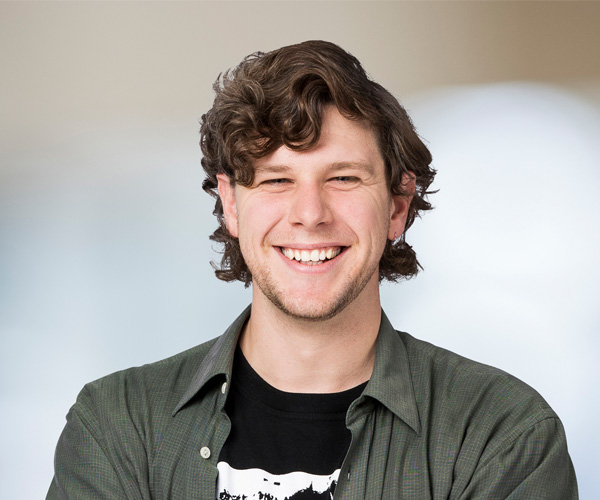Alexander Thomas
PhD Candidate
Working groups

Background
Alex is a PhD candidate under Dr Rachel Sacks-Davis investigating hepatitis C elimination among people living with HIV in high-income countries. He is also working with the 'Modelling and Biostatistics' group to build a health economic model for driving investment in global adolescent health. This work is part of a Centres of Research Excellence (CRE) partnership with the Murdoch Children's Research Institute (MCRI) and other partners.
Alex is also an analyst, health modeller and data manager at Burnet. He supports a range of programs in the 'Disease Elimination' program. Alex has a keen interest in data-driven and qualitative approaches to resolving health inequity in Australia.
In 2017, Alex moved to Victoria to undertake an honours degree in health sciences at Swinburne University. His focus was on systems and cognitive neuroscience. Alex received first class honours for his work and contributed to further studies as a research assistant in the Brain and Psychological Sciences Centre. Alex completed his bachelor of psychological science in 2016 with Griffith University in Queensland, taking an interest in cognitive neuroscience and community mental health.
Throughout his career, Alex has worked in a range of community mental health and emergency relief organisations as a support worker.
Qualifications
- 2024–present: Doctor of Philosophy, School of Public Health and Preventative Medicine, Monash University
- 2020–2023: Masters of Biostatistics, Biostatistics Collaboration of Australia (BCA), Monash University
- 2017–2018: First Class Honours in Health Science (Bachelor of Health Science (Honours)), Swinburne University
- 2013–2016: Bachelor of Psychological Sciences, Griffith University
Positions
- Community Support Worker, Darebin Information Volunteer & Resource Service (DIVRS), Preston
- Research Assistant, Swinburne University of Technology
- Rehabilitation Officer, Canefields Clubhouse, Logan, Queensland
Burnet publications
View 6 moreReturn on investment from interventions to prevent common mental disorders among adolescents in Australia: A modelling study
Australian & New Zealand Journal of Psychiatry
Alexander Thomas et al
Well-being among people with long and short COVID: a serial cross-sectional study in Victoria, Australia
BMJ Public Health
Aimée Altermatt et al
A longitudinal study of alcohol consumption among adults in Victoria, Australia during the COVID-19 pandemic
PLoS ONE
Tianhui Ke et al
Reports and other work
-
COVID-19 testing in schools and attitudes and concerns about the current state of the pandemic. (PUBLIC HEALTH REPORT)
The Optimise Study has followed a cohort of over 700 Victorians since September 2020. A rapid survey was conducted between 28 October and 4 November 2021 to assess optimise participants' views about the best ways to implement COVID-19 testing in schools.
COVID-19 testing in schools and attitudes and concerns about the current state of the pandemic. (PUBLIC HEALTH REPORT) -
The Optimise Study: A rapid survey examining concerns about children returning to school in 2022. (PUBLIC HEALTH REPORT)
The Optimise Study has followed a cohort of around 700 Victorians since September 2020. A rapid survey was conducted between 4 and 14 March 2022 to assess Optimise participants' concerns about children returning to school, COVID-19 testing in schools, views about COVID-19 prevention measures taken in schools, and the acceptability of closing schools under certain circumstances.
The Optimise Study: A rapid survey examining concerns about children returning to school in 2022. (PUBLIC HEALTH REPORT) -
The Optimise Study: Summer 2021-2022 Snapshot. (PUBLIC HEALTH REPORT)
The Optimise Study: Summer 2021-2022 Snapshot. (PUBLIC HEALTH REPORT)
Past projects

The Optimise Study: Optimising Isolation, Quarantine and Distancing for COVID-19
This project aims to find out how Victorians are experiencing COVID-19 and responding to the measures introduced to stop the spread of the virus.

Coping with COVID-19: Young people’s health and wellbeing in Australia
The COVID-19 pandemic brought unprecedented disruption. We’re engaging with young people to design public health solutions that help this group and others in uncertain times.




